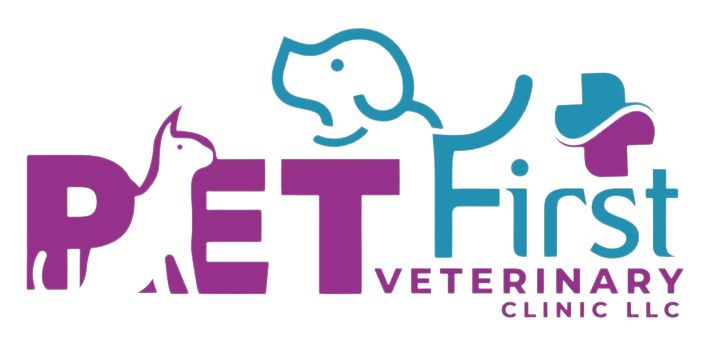Curious if your cat can snack on chickpeas? Delve the truth about feline diets and chickpeas safety. Let’s unveil if kitties can indulge in this legume or if it’s a potential dietary no-no.
Curious if your cat can snack on chickpeas? Delve the truth about feline diets and chickpeas safety. Let’s unveil if kitties can indulge in this legume or if it’s a potential dietary no-no.
The obligate carnivores, cats and dogs, often surprise pet owners with their finicky eating habits. Coming to that have you ever wondered if your cat can also enjoy the same chickpeas that you do? Whether as a part of their main diet or as an occasional treat, the idea of sharing chickpeas with your cat might be intriguing. Lets uncover the truth – can cats eat chickpeas?
Yes, cats can eat chickpeas in moderation. Chickpeas are non-toxic to cats and can be a source of protein and fiber. However, they should only be given as an occasional treat and not as a main part of their diet. It’s important to serve them cooked and plain, without any added spices or seasonings. Consult with a veterinarian before making significant changes to your cat’s diet.
Before making any major change in your cat’s diet, know that the nutritional needs of cats are distinctly different from humans, making it crucial to understand how chickpeas fit into a cat’s diet. Lets explore the potential benefits and risks of feeding chickpeas to cats, and offer expert guidance on providing a balanced diet for our feline companions.
Are Chickpeas Safe for Cats?
Yes, it’s completely safe for cats to eat chickpeas, if given in moderation and not as a regular part of diet. There is evidence found on exploring feline nutrition, too much chickpeas can cause digestive problems in both cats and dogs. Cats and dogs have short digestive-tracts and limited ability to break down carbohydrates which don’t support effective digestion of plant-based foods like chickpeas.
Are Chickpeas Bad for Cats?
No, chickpeas are not bad for cats, but chickpeas are not an alternative to the meat-based protein. Unlike humans, cats and dogs are not able to produce certain essential nutrients on their own such as the amino acid, vitamin B12, and taurine.
Taurine supports the overall health and vital organs of cats and dogs, this amino acid is only found in animal-based proteins. This explains why cats can’t rely on chickpeas solely.
Are Chickpeas Toxic to Cats?
No, chickpeas are not toxic to cats. The science-baked information on diet and health of cats supports the consumption of non-meat foods such as chickpeas as a source of protein. However, keeping a balance is the key here.
Chickpeas, also known as Garbanzo Beans are safe for cats and dogs to have, if they are not the only protein source in your feline friend’s diet. The high amount of fibre in chickpeas is something cats are sensitive to, which potentially causes diarrhoea, bloating or constipation.
Are Cats Allergic to Chickpeas?
No, Cats are not allergic to chickpeas, but some cats might get allergic to chickpeas if they don’t take a non-meat diet. Allergies in cats manifest through skin irritation, gastrointestinal issues, or respiratory problems, and the reaction to any new food, including chickpeas, can vary widely among individual cats.
It’s crucial to introduce any new food, such as chickpeas, in small quantities and observe your cat for any adverse reactions. If you notice any unusual symptoms after feeding chickpeas to your cat, it’s best to discontinue feeding them and consult with a veterinarian. Always prioritize a diet that aligns with a cat’s carnivorous needs, rich in animal proteins, to ensure their health and well-being.
Can Cats Eat Canned Chickpeas?
Cats can eat canned chickpeas considering canned chickpeas and commercial diets are carefully formulated to provide the optimal balance of protein, fat, vitamins, and minerals that cats need to thrive. However, it’s crucial to ensure that the chickpeas are plain, without any added salt, spices, or seasonings, as these can be harmful to cats.
Canned chickpeas must be rinsed thoroughly to reduce any excess sodium, which is not healthy for cats. Additionally, providing fresh water and occasional treats specifically designed for cats can complement their diet without compromising their health.
While it’s tempting to offer human foods to our feline companions, it’s essential to prioritise their nutritional needs. A balanced diet for cats should consist primarily of high-quality, meat-based cat food formulated to meet their specific nutritional requirements.
Also Read: Can Cats Eat Pasta? Here’s What Vets Say About It
Nutritional Benefits of Chickpeas for Cats
Besides protein and fibre, chickpeas are a good source of iron and antioxidants. Iron helps in the production of red blood cells and antioxidants help remove toxins from the cat’s body.
Can Cats Eat Cooked Chickpeas?
Yes, cats can eat cooked chickpeas, make sure they are not seasoned with onion or garlic. Cats eat chickpeas in any form, whether plain if cooked, boiled, or straight out of a can or pot.
According to the National Centre For Biotechnology Information, inclusion of up to 30% raw garbanzo beans in extruded feline diets can be fed successfully, without compromising gastrointestinal tolerance or nutritional adequacy.
Takeaway
Cats and dogs can eat chickpeas safely but it’s just to add a variety in their meal options. Chickpeas in cat food is only for munching and occasional eating as their body demands for meat-based protein to stay healthy.










